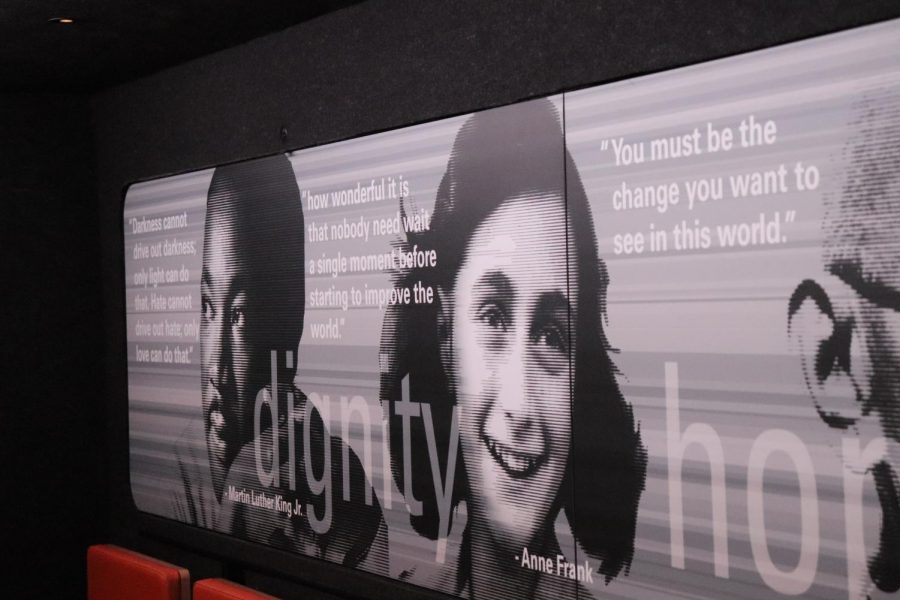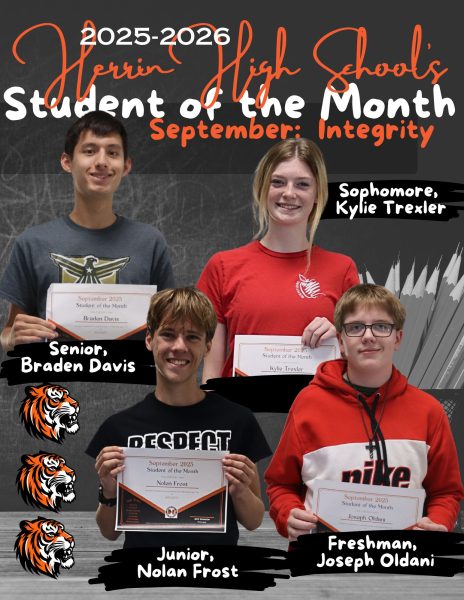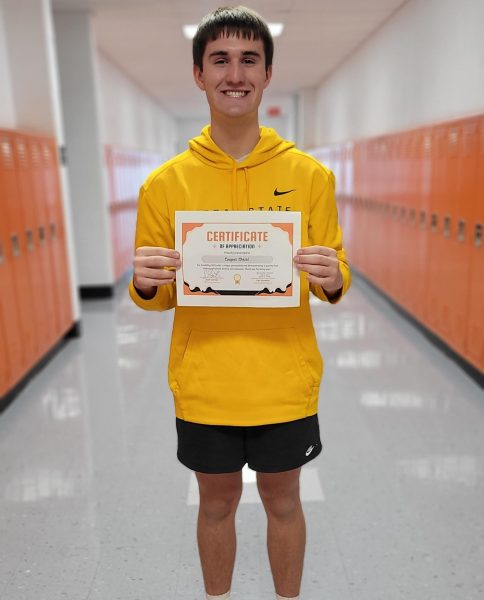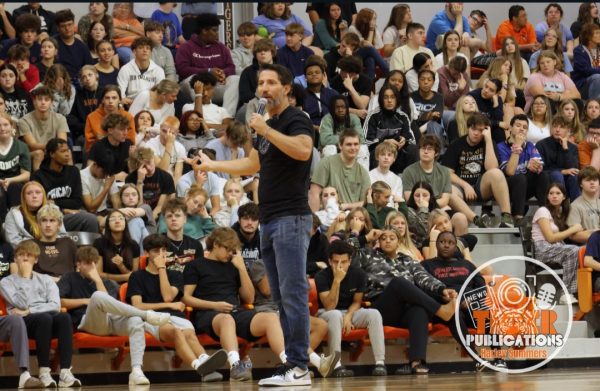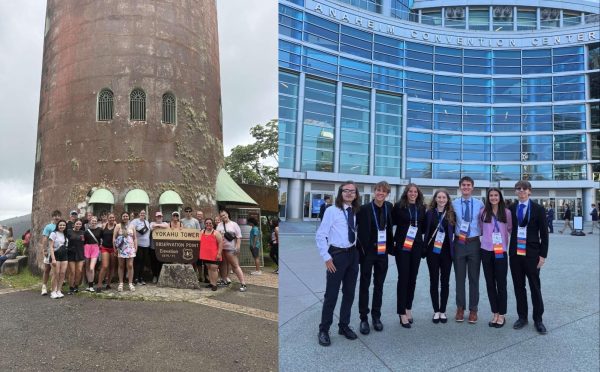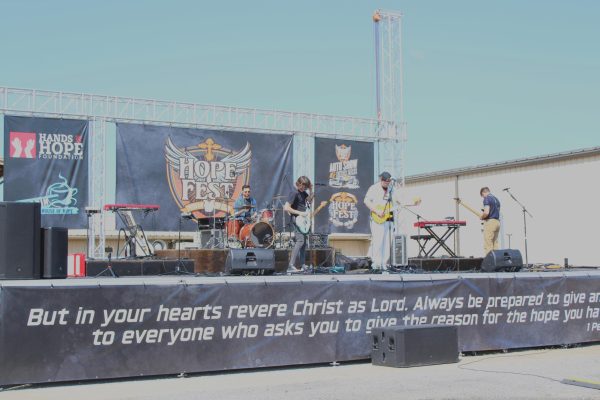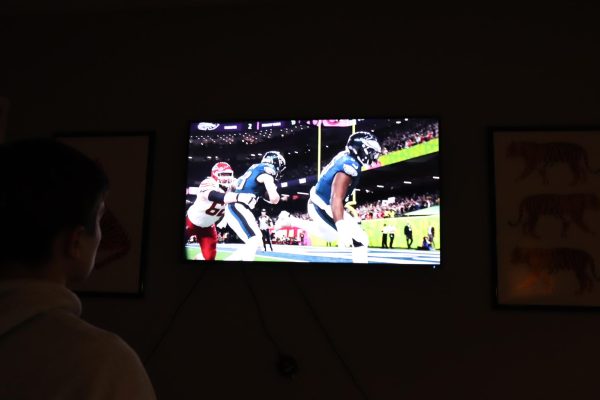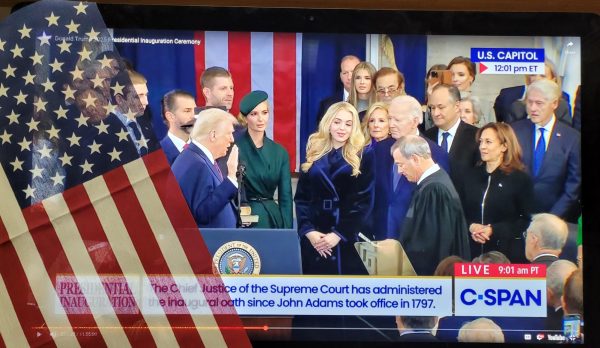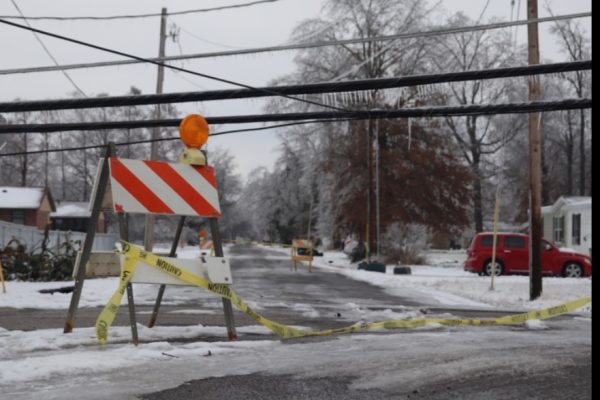The Mobile Museum of Tolerance
Photography, Aubree Williamson
On Wednesday, October 20th, and Thursday, October 21st, the Mobile Museum of Tolerance, created by the Simon Wiesenthal Center, came to Herrin High School and showed their exhibit to several classes of juniors in American history as well as underclassmen. The Tiger Journalists were allowed to attend during the 6th hour on Wednesday. There they were shown two video presentations and also discussed the Holocaust and tolerance in the 1930s as well as the present.
Throughout the presentation of videos, a speaker made thorough points as to how we can be tolerant. In such ways, this is the practice of the Golden Rule: “Treat others the way you want to be treated.” By analyzing past history, today’s society is less likely to repeat mistakes. With audience participation, the class came up with several ways to advocate for tolerance in our communities, whether it be through volunteer work or just having a nice demeanor.
On the walls of the mobile museum were several quotes from past advocates of tolerance. One quote from Dalai Lama said, “My religion is simple. My religion is kindness.” By reading these quotes, individuals can gain more insight on how to bring insight into this moment of history.
In the exhibit, the three screens made sure that everyone had a good view of the outstanding videos. Through the two videos, the students were educated about how Jews were being attacked before they were even sent to concentration camps. The night of November 9th, 1938 is forever known as Kristallnacht, or the “Night of Broken Glass.” That night Jewish homes, businesses, and synagogues were broken, burnt, and destroyed. Over 100 Jews were killed.
Along with constant attacks and assaults, the Jewish people of Nazi Germany were forced to carry identification in the forms of cards and armbands. This identification let the bystanders and citizens of Germany know who was “unwelcome.” Not only were Jews un-tolerated but homosexuals and supporters of opposing political parties were also persecuted. In the first video, the Mobile Museum of Tolerance presented many important facts about the hate crimes against the Jewish people and other incriminated individuals
In the second video, titled “Power of People,” the Simon Wiesenthal Center discussed the everyday citizens of Germany. The Germans would come to believe the Jews are an evil race, rather than a religion, through propaganda plastered everywhere. On the radio and even in children’s books, Jewish citizens were shown as evil, tyrannical, and horrible people. Blindly following the Nazis, 300,000 men would join the Nazi police battalions. These everyday citizens would volunteer to kill the “evil” Jewish women, children, and elderly deep in the forest.
In “Power of the People,” came a quote from a German teen commenting on the proceedings of the “Night of Broken Glass.” He said, “No German could ever plead ignorance after the persecution of the Jews.” As present-day citizens, being educated on the horrific details of the Holocaust will help us never to do something like that. Through programs like the Mobile Museum of Tolerance, we can spread awareness and tolerance against the horrific acts present in the Holocaust.
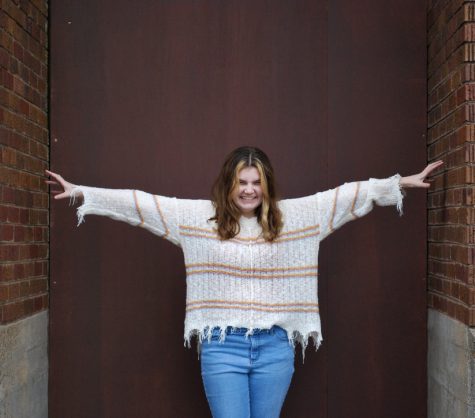
Rylie Patrick is a Senior at Herrin High School during the 2021-2022 school year. This is her first year on the Journalism Team. Rylie's analytical mindset,...
Jarret Coleman is a senior for the 2022-2023 year. He is excited to manage the newspaper as he thoroughly enjoys journalism.
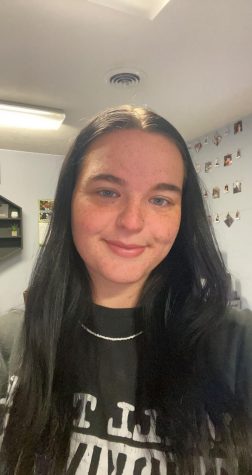
Aubree Williamson is a senior during the 21-22 school year and this is her third year in the tiger journalism class. She joined because she wants to help...



